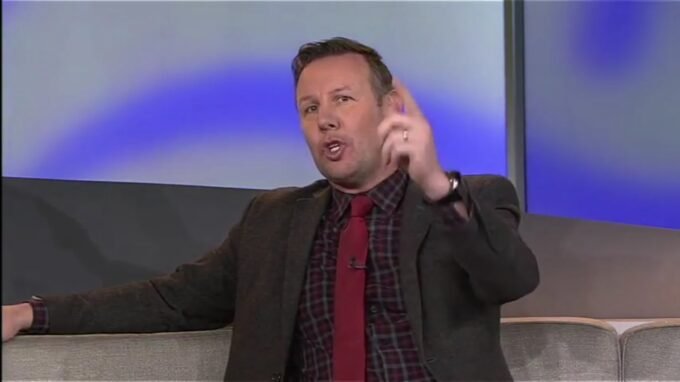I’ll be honest: I get why someone would try to smooth things over publicly. It can feel brave, even a little hopeful. But when Justin Bieber reposted an edit that used Taylor Swift’s song, it didn’t land like a thoughtful gesture. Instead, it read to many as awkward, unsure, and—yes—kind of desperate. Maybe that’s harsh. Maybe it’s fair. Either way, it stirred up a predictable storm of reactions, especially from Swift’s loyal fans.
There’s history here, and you don’t need a recap of every headline to understand it. The tension traces back to Taylor’s battle with Scooter Braun over who owns her old recordings. Scooter used to manage Bieber. That link is enough to make any small public overlap between Justin and Taylor feel loaded. So when Justin posted an Instagram Story that included one of Taylor’s re-recorded songs—this time used in a fan edit of his son, Jack Blues—it opened up an old wound for many observers.
Also read: When the Assistant Looks Like Family: Ainsley Earhardt and Lexi’s Close Bond
Why people reacted badly (and why some didn’t) It’s simple and then it’s not. On the surface, reposting a fan edit of your kid is a normal dad thing. You blur the background, you share a sweet moment, you’re—rightfully—proud. But the soundtrack matters. Using Taylor’s “Never Grow Up” (one of her “Taylor’s Version” re-recordings) felt intentional to some and coincidental to others. That ambiguity is exactly what fuels online debate. Fans saw it and immediately started asking: was he trying to build a bridge with Taylor? Or was he just borrowing a popular track for an emotional effect?
Some people chose to read benevolence into it. They thought, maybe this is a small, human moment—no press, no headline hunt. And sure, a few fans cheered the idea that two big names might be moving past old drama. A minority even welcomed the image of a truce.
But a louder group saw a different picture. For them, the repost looked performative. The narrative went something like this: Justin knows how potent Taylor’s catalog is and how protective her fans are. Posting her music in a sentimental story about his child could be seen as a bid for approval—by Taylor, and by her fan base. That felt cynical, and people called it out. Harshly.
Perception versus intent: why this matters I talked this through in my head like many others have—does intent matter if perception is already fixed? Amy Prenner, a communications executive, put it neatly: it’s “perception vs. reality.” I don’t disagree. If your audience believes something is staged, you’re already losing. Even a genuine move can get smeared when the context carries baggage.
There’s a lesson here that doesn’t only apply to celebrities. When you try to make amends publicly, you risk two things: being ignored or being accused of grandstanding. The internet is unforgiving about both. So whether Bieber meant it as a private nudge toward closure, or he genuinely likes the song and thought it fit the clip, matters less than how fans interpret the act.
Also read: School of Rock Cast: Where Are They Now?
What he could have done differently. If Justin wants to quiet the noise—and again, I’m not saying he definitely does—there are quieter, less headline-friendly ways to handle it. Amy Prenner suggests the best path is authenticity and discretion. I agree, mostly.
- Keep it private first: A personal message or a call, not a post. Public reconciliations often look staged. Private outreach feels real.
- Be consistent: If you’re genuinely trying to change the tone, show it over time. One-off gestures read as stunts.
- Focus on your own narrative: Post about your own growth, your music, your family, without leaning on another artist’s emotional work for effect.
- Don’t jump into fan wars: Engaging with or responding to every critique only fuels the fire. Let the work speak, or don’t speak at all.
These aren’t new ideas. They’re just basic human diplomacy: quieter, slower, less for the cameras.
A messy but familiar human scene What’s interesting is how human this whole thing looks when you strip away the celebrity gloss. People make gestures that aren’t perfectly clear. They have mixed motives. They hope for forgiveness or validation, and they sometimes pick the wrong stage to ask for it. As a viewer, I find that oddly relatable. I’ve fumbled with apologies in public and watched them be misread. You think you’re being brave. Others think you’re showy. That disconnect is…annoying.
Still, there’s no single right answer. Maybe Bieber didn’t realize how his move would read. Maybe he did. Maybe Taylor didn’t notice or didn’t care. We don’t know. But the reaction tells us something about celebrity culture: fans guard their favorite artists fiercely, and anything resembling a softening by a perceived adversary becomes cause for suspicion rather than celebration.
A closing thought This episode feels less like a final straw and more like a reminder: public attempts at reconciliation are risky. They can be warm and human, or they can come off as attempts to score points. Often they’re a bit of both. I’m not trying to pick sides—I’m just noting how easy it is for small gestures to be read in big, complicated ways. Justin shared a touching family moment; it hit a nerve because of history. That’s as much about us as it is about them.







































Leave a comment